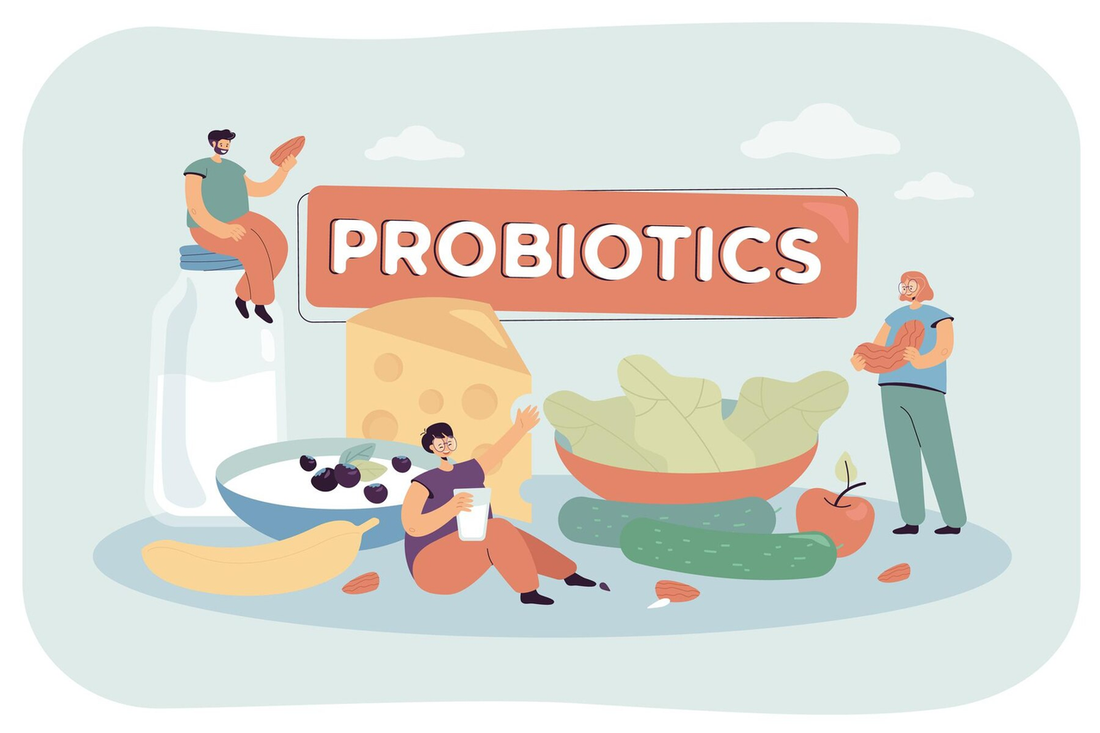In recent years, probiotics have gained significant attention for their potential health benefits. These beneficial bacteria, found in various foods and supplements, play a crucial role in maintaining a healthy gut and overall well-being. Here’s what you need to know about probiotics and how they can enhance your diet.
Understanding Probiotics
1. What Are Probiotics?
Probiotics are live microorganisms, often referred to as "good" or "friendly" bacteria, that provide health benefits when consumed. They are similar to the beneficial microorganisms naturally found in the human gut.
2. The Science Behind Probiotics:
Probiotics work by balancing the gut microbiota, enhancing digestion, boosting the immune system, and preventing the growth of harmful bacteria. They produce various substances that inhibit pathogens and support the gut lining.
Health Benefits of Probiotics
1. Improved Digestive Health:
Probiotics help maintain a healthy balance of gut bacteria, which is essential for optimal digestion. They can alleviate common digestive issues such as bloating, gas, and constipation. Certain strains of probiotics have been shown to prevent and treat diarrhea caused by infections or antibiotics.
2. Enhanced Immune Function:
A significant portion of the immune system resides in the gut. Probiotics enhance the gut's immune response, helping to protect against infections and diseases. They stimulate the production of natural antibodies and promote the activity of immune cells.
3. Better Mental Health:
Emerging research suggests a strong connection between gut health and mental well-being. Probiotics may help alleviate symptoms of anxiety, depression, and stress by influencing the gut-brain axis. They produce neurotransmitters like serotonin, which play a role in mood regulation.
4. Weight Management:
Probiotics can support weight management by influencing the metabolism and fat storage processes. Certain strains have been found to reduce body weight and belly fat. They also help regulate appetite and reduce cravings.
5. Skin Health:
Probiotics can benefit the skin by reducing inflammation and supporting the skin barrier. They may help manage conditions like eczema, acne, and rosacea by promoting a balanced gut microbiome and reducing systemic inflammation.
Sources of Probiotics
1. Fermented Foods:
Fermented foods are rich sources of natural probiotics. Include foods like yogurt, kefir, sauerkraut, kimchi, miso, and tempeh in your diet. These foods undergo fermentation, which increases their probiotic content.
2. Probiotic Supplements:
Probiotic supplements are available in various forms, including capsules, tablets, powders, and liquids. Look for supplements containing a variety of strains and a high CFU (colony-forming units) count for maximum benefits.
3. Probiotic-Rich Beverages:
Beverages like kombucha and certain types of fermented tea are excellent sources of probiotics. These drinks can be a refreshing way to increase your probiotic intake.
Incorporating Probiotics into Your Diet
1. Start Slowly:
If you’re new to probiotics, start with small amounts to allow your body to adjust. Gradually increase your intake to avoid potential digestive discomfort.
2. Diversify Your Sources:
Consume a variety of probiotic-rich foods and supplements to ensure you get a range of beneficial strains. Different strains offer different health benefits, so diversity is key.
3. Pair with Prebiotics:
Prebiotics are non-digestible fibers that feed probiotics and support their growth. Include prebiotic-rich foods like bananas, onions, garlic, asparagus, and whole grains in your diet to enhance the effectiveness of probiotics.
4. Consistency is Key:
For probiotics to be effective, they need to be consumed regularly. Make probiotic-rich foods a staple in your diet and consider daily supplementation if needed.
Practical Tips for Probiotic Use
1. Reading Labels:
When choosing probiotic foods or supplements, read labels carefully. Look for live and active cultures, and check the expiration date to ensure the probiotics are still viable.
2. Storage:
Proper storage is crucial for maintaining the potency of probiotics. Some probiotic foods and supplements require refrigeration, while others are shelf-stable. Follow storage instructions to ensure maximum benefits.
3. Consulting a Healthcare Provider:
Before starting any new supplement regimen, consult with a healthcare provider, especially if you have underlying health conditions or are taking other medications. They can recommend the right strains and dosages for your needs.




